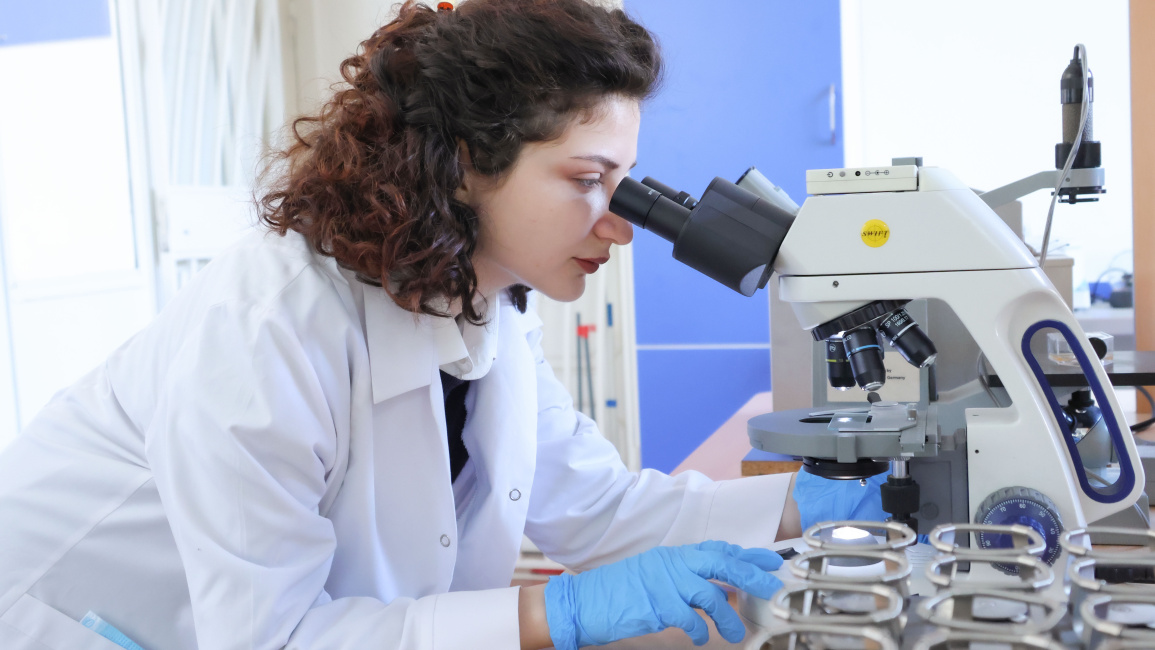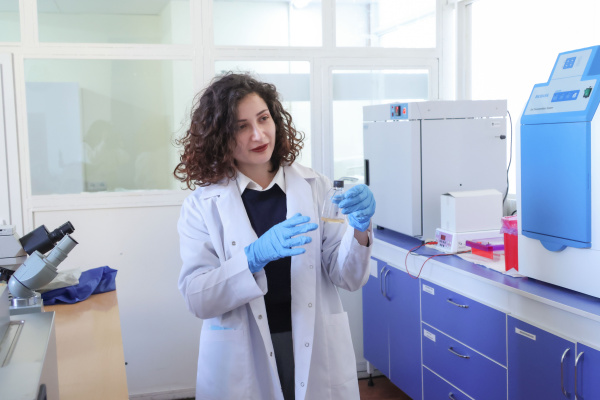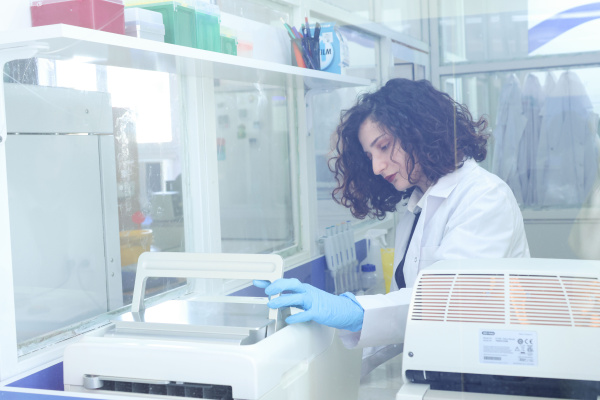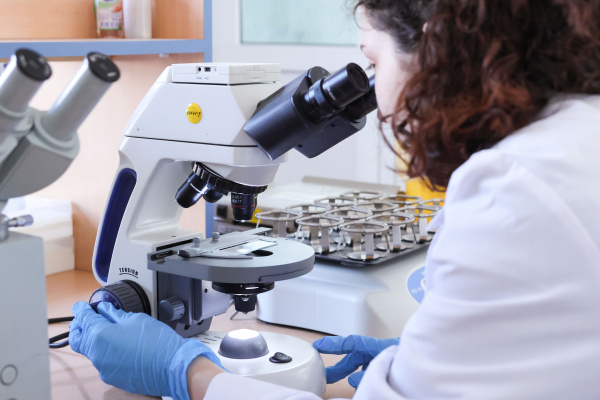February 05, 2025 | 15:50
Science
Education
YSU PhD student develops novel strategy to prevent cancer progression
Exosomes—microscopic, membrane-bound particles released by cells—can have a significant impact on cancer development. Exosomes secreted by cancer cells influence neighboring cells, facilitating disease advancement. Lily Kalashyan, a PhD student at the Chair of Genetics and Cytology, YSU Faculty of Biology, is studying the role of exosomes in cancer development, analyzing potential ways to inhibit them in order to slow disease progression.

The scientific project "Application of Exosome Inhibitors for Potential Enhancement of Radiation-Induced DNA Instability in Cancer Cells" by Lily Kalashyan, a PhD student at the Chair of Genetics and Cytology, Yerevan State University, and a junior researcher at the Research Institute of Biology, has been approved for funding as a result of the RA MoESCS "Research Assistance Program for Young Applicants and PhD Students - 2024" competition.
Relevance and Importance of the Topic
Speaking about the significance of the research topic, Lily Kalashyan explains that exosomes are formed within cells and accumulate various intracellular molecules, including proteins, lipids, and nucleic acids. Upon release from the cell, they transfer and pass on the molecules they contain to neighboring cells. Exosomes released from cancer cells connect with neighboring cells, contributing to cancer progression and recurrence. Conversely, inhibiting exosomes with specific chemical compounds significantly reduces the abnormal growth of cancer cells.

"Currently, cancer is one of the primary causes of death worldwide, including in Armenia. Modern science is focused on developing methods that will allow for more accurate and efficient suppression of the proliferation of cancer cells while minimizing damage to normal cells. Our team, in collaboration with the CANDLE Synchrotron Research Institute and the Institute of Molecular Biology, has been studying the effects of radiation on both normal and cancer cells in recent years. We have compared the effects of various types of radiation on cell viability and the level of DNA damage," she explains, adding that the team aims to identify radiation parameters under which it would be possible to induce DNA damage in cancer cells that is more difficult to repair.
In studying the role of exosomes in cancer progression, a new idea has emerged to make cancer cells more sensitive to radiation by inhibiting the release of exosomes from them.
"Our main goal is to determine how effective the inhibition of exosomes is in increasing the radiosensitivity of cancer cells," the PhD student emphasizes.
Research Aimed at Increasing the Radiosensitivity of Cancer Cells
Lily explains that about 50% of cancer patients undergo radiation therapy during their illness. However, even with the advanced technical capabilities of modern radiotherapy devices, many patients still suffer from recurring local cancers after radiotherapy. This is the main reason why radiation therapy is combined with targeted molecular therapy. The current technology being tested is focused on increasing the radiosensitivity of cancer cells. According to the PhD student, this is crucial for preventing cancer recurrence after radiation therapy.

"Thanks to the collaboration between the CANDLE Synchrotron Research Institute and the Chair of Genetics and Cytology at YSU, we have the opportunity to study the effects of radiation generated by electron beams from the unique AREAL accelerator on DNA damage in both normal and cancer cells in Armenia and the region. The accelerator is not yet used for clinical purposes, but the trials conducted so far have shown the effectiveness of radiation with accelerated electrons compared to other previously tested radiation sources, such as X-rays or quasi-continuous radiation. At the same time, combining exosome inhibition with electron beam radiation in cancer cells is an entirely new direction that has not been studied before," says YSU PhD student, highlighting the innovation in their research.
New Perspectives Through the Application of Scientific Results
Lily points out that introducing new methods in anti-cancer therapy is a complex and multi-phase process, and they are still in the early stages of research.
"In the future, if promising results are obtained in living organisms, it will be possible to guarantee the application of the method as a way to improve radiation therapy and increase its effectiveness," she emphasizes.

The researcher also notes that she recently conducted a study on the telomeres of irradiated cancer cells at the Institute of Human Genetics in Jena, Germany. This year, together with Armenian and international partners, she plans to continue and expand the research scope.
She hopes that the research will yield interesting discoveries and that the results will be useful for the further development of the field.
YSU PhD student stated that after completing her studies, she will expand her scientific interests by exploring new directions that will have practical significance.

